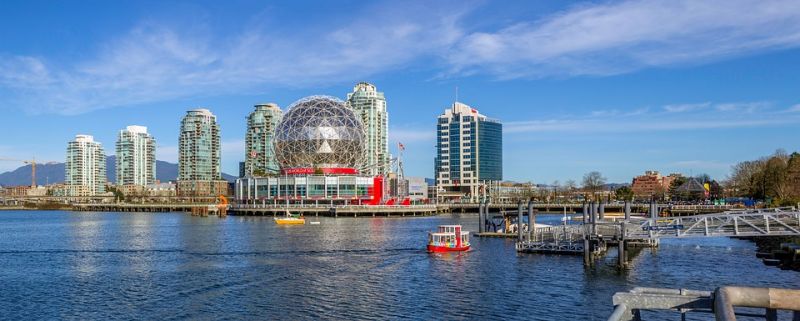Vancouver Puts New Focus on Rainwater Management
Published on by Water Network Research, Official research team of The Water Network in Government
Strategy aims to capture and clean 90% of city's rainwater.

Vancouver, Source: Pixabay
Vancouver is notorious for its heavy rainfall, but the environmental impact of all that water is perhaps not as well known.
The City of Vancouver is addressing that general lack of rainwater knowledge during a series of public workshops starting March 3.
The workshops are part of the Rain City Strategy, which aims to limit the amount of polluted road water run-off going into the ecosystem.
"We're a city of glass, concrete, asphalt, buildings ... The rain just doesn't have a lot of places to go," said Melina Scholefield, director of green infrastructure implementation for the City of Vancouver.
The goal of the Rain City Strategy is to capture and clean 90 per cent of rainwater in the city. To that end, the city is implementing new rainwater management practices that aim to use rainwater as a resource, rather than a waste product.
The target will be achieved by using a combination of "green" infrastructure and conventional pipe systems.
Harmful particulates
"A lot of people haven't realized just how much of an impact pollutants have in our storm water system," said Scholefield.
Scholefield said many of Vancouver's older roads were not designed with the environment in mind. When it rains, the water run-off from streets can damage the ecology of surrounding bodies of water.
"There are lots of pollutants in the water run-off that people typically aren't aware of," said Scholefield.
When a vehicle pumps its brakes it can release copper particulates onto the road. When a car's tires start to disintegrate, zinc from the tires can end up on the street.
Those little particulates, and other types of pollutants, get picked up off the roads in the run-off, go into the sewage pipe system, and are then drained into receiving bodies of water, such as False Creek, during heavy rainfall.
"We really want to try and find a way to protect our aquatic habitat, make a healthy environment, and make sure we're cleaning the water before we release it," said Scholefield.
Read full article: CBC
Media
Taxonomy
- Rainwater Harvesting
- Urban Drainage
- Stormwater Management
- Stormwater
- Urban Water
- Urban Resource Management
- Urban Water Supply
- Infrastructure
- Storm Water Management
- Urban Water Infrastructure
- urban water security